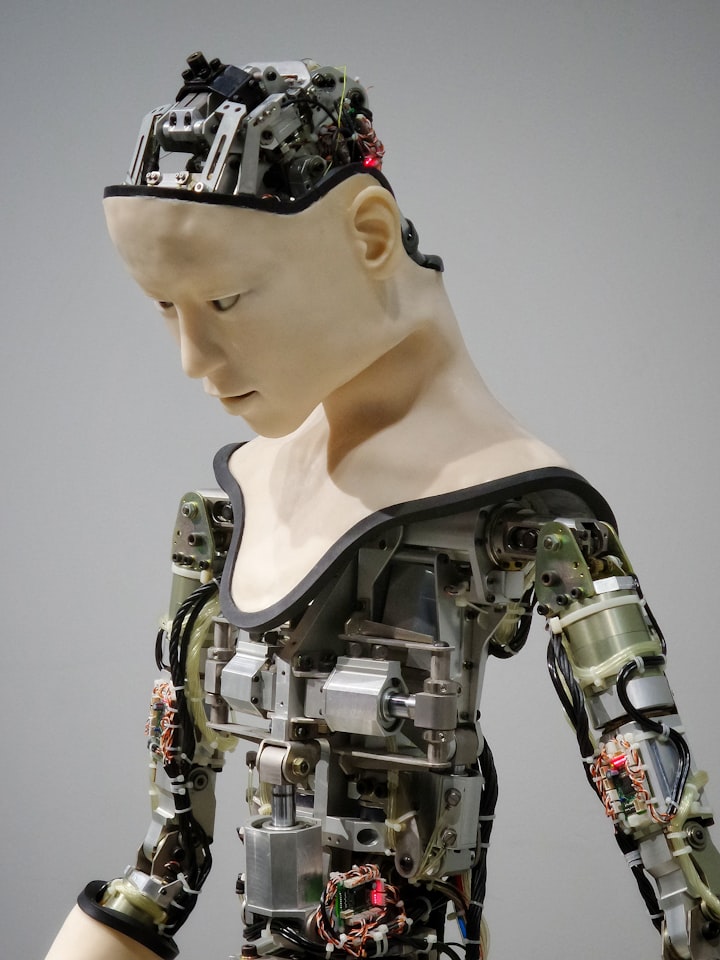Future of Automation: 9 Predictions to Look Out For in 2022
As a blend of robotics, machine learning, and artificial intelligence (AI), automation takes care of the mundane tasks we'd rather not spend time on, the work we don't want to mess up with human error, customer interactions that require instant responses – and so much more.

While automation has been evolving at lightning speed over the last few years, it doesn't look like it's slowing down. So what does the future of automation look like? We’ll cover that and more in this article.
9 Automation Trends to Watch in 2022
- Automating High-Value Actions
- Prioritizing Marketing, Sales, and Success Alignment
- Automation as a Vital Part of CRMs
- Automation for Greater Personalization
- Automation Across a Company's App Stack
- Business Chatbots as Full-Time Agents
- AI for Automated Decision-Making
- Automating Data Collection and Reporting
- RPA Helping Businesses Become More Productive
1. Automating High-Value Actions
Right now, the low-hanging fruit for automation is boring repetitive work. Automating front-office functions may be more challenging harder but it’s becoming more common.
More organizations will soon be using technology to automate quality customer experiences (CX).
According to the HubSpot Blog’s 2022 Marketing Trends Report, roughly 17% of marketers currently integrate automation or artificial intelligence as part of their marketing strategy.
future of automation: graphic with data from hubspot blog's 2022 marketing trends report
Another HubSpot Blog research survey on media and content planning revealed that over a quarter of marketers surveyed say they plan to leverage automation in their media planning strategy.
With the data showing that consumers are prioritizing CX more and expecting more personalization during brand interactions, this forces brands to consider automation for bigger-scale, higher-impact sectors of their businesses.
2. Prioritizing Marketing, Sales, and Success Alignment
Automation cannot be successful when operating in a silo.
That’s why it’s key for teams – particularly marketing, sales, and success teams to be in alignment as they greatly impact the customer journey.
It’s no longer enough to automate marketing emails. What about contact handovers when a contact moves down the funnel? Or follow-ups once a lead completes a high-intent action?
Because marketing teams are only one part of the journey, it’s essential that automation workflows account for user behavior beyond marketing.
3. Automation as a Vital Part of CRMs
According to a 2021 LinkedIn report, 75% of sales professionals use technology — usually a CRM — to close more deals.
Despite this, today’s salespeople spend just a great deal of time catching up with admin work and data entry instead of selling.
As sales and marketing teams realize the potential of automation to tackle repetitive tasks, more of the top CRM tools are developing powerful automation features.
These will enable companies to automate routine tasks to speed up sales cycles, send personalized marketing messages, and proactively resolve customer service cases without lifting a finger.
4. Automation for Greater Personalization
Nearly half of consumers say they will likely become repeat buyers after a personalized shopping experience with a retail brand, according to Twilio’s 2022 State of Personalization report.
future of automation: graphic displaying twilio's data
Following the pandemic, the need for personalization grew and brands must respond or risk falling behind.
From audience segmentation and drip campaigns to product recommendations and cart abandonment notifications, personalization cannot operate at scale without automation.
This new shift toward personalization means automation will become a higher priority for brands.
5. Automation Across a Company's App Stack
Businesses have more tools than ever before at their fingertips.
In the future of automation, more companies will have a Head of Business Systems role to oversee their huge number of tools — and this position will hold a vast capacity for impact and change.
More than ever, the SaaS tools we choose will help our businesses become more productive, profitable, and impactful.
For best results, companies will connect their tools to enable automated two-way data syncing and greater accuracy.
6. Business Chatbots as Full-Time Agents
According to a 2021 Vonage report on customer engagement, one in five consumers use live chat or in-app chat daily.
While today's businesses mostly use live chat to facilitate real-time conversations between consumers and business representatives, more companies are setting up chatbots.
With bots, companies can provide answers to frequently asked questions and even resolve issues without a team member's involvement. Increasingly, the best chatbots serve as full-time customer support agents.
The key to a bot's success is intelligence, which still has its limitations, but is improving fast.
In the future of automation, bots will become more useful, more intelligent, and may soon incorporate voice functionality.
7. AI for Automated Decision-Making
Decision-making is tiring.
You need the right data at your fingertips, to look beyond your biases and get agreement from other stakeholders. AI will increasingly provide a solution to this, delivering high-quality data that can help inform the best decisions.
In a 2021 State of B2B Marketing Automation Report, 58% of B2B professionals say the #1 tactic that most amplifies the success of their marketing automation tool is quality data.
future of automation: graphic displaying B2B marketing automation data data
While some decisions can be instantly acted on with automation, many will – and should – go back to humans for consideration from an emotional and empathetic side.
8. Automating Data Collection and Reporting
Automating data management is essential to ensure data quality and integrity.
However, reporting doesn't have to involve confusing Excel exports and hours spent manipulating data.
By consolidating all of your customer data with an iPaaS solution, your tools can deliver more accurate reporting with the information at hand.
9. RPA Helping Businesses Become More Productive
RPA, also referred to as ‘robotics’ or ‘robots,’ is defined as the automation of rules-based processes with software that utilizes the user interface and which can run on any software, including web-based applications, ERP systems, and mainframe systems.
This could include opening emails and attachments, moving files and folders, or filling in forms.
Going forward, RPA is likely to become a more standard part of our workflows, whether via stand-alone tools, features of the tools we're already using, or integrated apps.
Is automation changing work as we know it?
The short answer is yes, but for the better.
A 2021 PWC survey found that 61% of people globally believe that automation is putting people’s jobs at risk. However, the truth is automation is not removing employment opportunities, it’s redefining roles.
The role of automation is to take care of the tasks that machines can do better than us, removing human error and allowing for scalability.
One common misconception about automation is that it’s a set-it-and-forget-it approach. However, that couldn’t be further from the truth.
While it does free up time, that time is used to feed and optimize to produce better results. So, automation doesn’t mean losing the human side, it means empowering workers to focus on more impactful work.





Comments
There are no comments for this story
Be the first to respond and start the conversation.